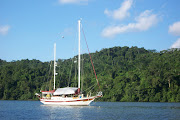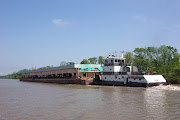What has actually changed? Not a whole lot. On January 17th, the President announced that the requirement for a license from the Treasury Department for approved visits to Cuba would be changed. Notice the word changed, not eliminated. The facts are that there are still the same restrictions in place that were in place prior to December 17th and they are the same as they have been for decades. The only change as of January 16th is that a license is no longer required to be issued by the Treasury Department in order to travel to Cuba under the current restrictions. Here is where a lot of confusion came about and where the rumors came from. All of the past restrictions are currently in place, except that a formal license is no longer required under certain exemptions and the process is now done on the honor system.
What are the exemptions and can I qualify? OFAC has issued general licenses within the 12 categories of authorized travel for many travel-related transactions to, from or within Cuba that previously required a specific license (i.e., an application and a case-by-case determination). Boaters may now visit the island for 14 days under one of these general licenses. Travel-related transactions are permitted by general license for certain travel related to the following activities, subject to criteria and conditions in each general license:
- Family visits.
- Official government business.
- Journalism.
- Professional research and meetings.
- Educational activities.
- Religious activities.
- Public performances, clinics, workshops, exhibitions and athletic competitions.
- “Support for the Cuban people.”
- Humanitarian projects.
- Activities of private foundations or research for educational institutes.
- Exporting or importing information or “information materials.”
- Travel related to some authorized export transactions.
Can I start my own church and visit on religious activities? Going on to the internet and starting the Church of What's Happening Now isn't going to pass muster. Religious activities are extended to major denominations, require traveling in a group and attending conferences or events related to the churches activities. Most American travelers will still have to certify that they have a valid reason to travel to Cuba under existing law and retain records for five years proving that they fell under an exemption, according to the Treasury Department. It is also required that a record of your itinerary, as it applies to the category under which the visit falls, must be kept for five years. If the Office of Foreign Assets Control suspects someone of traveling to Cuba in violation of the rules published by the Treasury Department, that person could face an audit and fines. Under the General License, a journalist, subject to appropriate conditions, full-time journalists, supporting broadcast and technical personnel and freelance journalists are permitted to travel. However, you will need to show credentials or past work to be eligible under the General License. It is illegal for a U.S. citizen to go to Cuba to write a book or paper or any other form of media and to profit from it other than being paid by an approved organization. It is also illegal for a U.S. citizen to take any action that encourages or promotes tourism to Cuba.
Can I do any of these things from my boat? Again, the answer is no, unless visiting for the 14 day limit under the general licenses. George W. Bush tightened the restrictions considerably under his administration, and no matter what the intentions, traveling to Cuba by boat is assumed to be travel for recreational purposes and tourism. From the Federal Register, Note to § 515.550(d): This general license does not authorize vessels to transport persons between the United States and Cuba. See § 515.572(c). The United States Coast Guard is currently (as of this blog posting date) on constant patrol in the Florida Straits looking for Cuban refugees trying to get into the United States. Rumors that the U.S. government is planning to end the wet foot/dry foot policy has created an urgency and an increase in rafters. The weak link in the restrictions is the educational exemption. All that's needed is to sign a piece of paper saying your traveling to learn some aspect of Cuban life and the Cuban people. But you still can't do this from your boat...legally, for more than 14 days.
If I go anyway, what's the worst that can happen? Many of the internet gurus profess to have traveled back and forth between the U.S. and Cuba without ever getting caught and will tell you that lots of American boats go over all the time. Beware, it may very well be possible that these so called gurus have never left the dock, let alone sailed to our southern neighbor. Susan and I have never and will never advise or advocate that anyone break the law of this country or any other. Ric Herrero of #CubaNow, a non-governmental organization pushing for closer ties to the island, says the restrictions still have a chilling effect on travel.“If you get caught, you get fined -- how that’s going to get enforced, we don’t know yet,” Herrero said. There are many that proclaim that Americans should be able to travel wherever they want, and no government is going to tell them otherwise. Whether you subscribe to that attitude or not, this is still the law and as such, it's an individual's decision whether they will violate the law and suffer the consequences if they get caught, no matter how small the chances may be. Even for foreign flagged vessels, there is what is known as the "180-day rule" and it provides that no vessel that calls at Cuba may thereafter call at a U.S. port for 180 days after said Cuban call. The only exception to this rule were activities specifically licensed by the Secretary of the U.S. Treasury.
Is there any other good news? Yes there is. After January 16th, the restriction regarding spending money while in Cuba have been lifted. If you are there on an approved visit, you may now spend unlimited amounts of money. "Other expenditures, other than those directly incident to the traveler’s authorized activities in Cuba, are not authorized." At the present time, you will need to take enough cash, but as of March 1st, MasterCard will begin taking swipes in Cuba for goods and services. I am sure the other credit card companies will follow suit. American Express has already indicated an interest. Travelers are now allowed to bring back up to $100.00 worth of alcohol and cigars, but total imports are not to exceed $400.00 for goods from Cuba to the U.S. In the U.S. Senate, a bi-partisan bill was introduced on January 29th, the Freedom to Travel to Cuba Act of 2015, that would completely lift the travel restrictions. A companion bill is to be introduced in the House of Representatives. Whether anything will be accomplished within Congress anytime soon is anyone's guess. It would be silly to assume things are going to change overnight. But we think that in a year or two there will be major changes and this discussion will take a totally different direction. Details from the Treasury Department on all things Cuba can be found at, http://www.treasury.gov/resource-center/sanctions/Programs/pages/cuba.aspx and a good summary of changes here, http://www.safety4sea.com/images/media/pdf/2015/USFinalRule31CFR515.pdf . Although the President can make some modifications to the current restrictions through executive order, only Congress can repeal or significantly change the current travel restrictions and embargo that has been in effect for over 50 years.
Susan and I have been to Cuba and look forward to the day when we can return. We wrote about our cruise of the south coast in a previous blog entry here. The people were the friendliest we have met anywhere. The officials were professional, friendly and welcoming. The beaches were spectacular and the reefs pristine. It will take some time for the infrastructure to catch up to the demand once travel is allowed and the boats start arriving. There are 15 marinas and 795 slips in the entire country. The marinas in Havana and Veradero are undergoing major renovations and others will follow. The Cuban government is preparing for the influx of boaters, but progress will be slow. Many may find the restrictions and bureaucracy stifling if they have never experienced the likes before. But from our perspective, it's all worthwhile. As things change, look for us to report here. Stay tuned.
.jpg)

.jpg)









Chuck and Susan,
ReplyDeleteThe same old stuff from you guys....ALWAYS CLEAR, CONCISE, INTERESTING, PRACTICAL, & EASY TO UNDERSTAND!
The closest that I will get to Cuba in the near future will be Elizabeth City, NC to go to dinner in an "escape from being marooned here on Willoughby Spit!
Thank you for sharing and caring about your many followers....and for caring about one another!
Thanks,
Alan
Alan,Sorry I didn't make it more interesting. I guess we're running out of things to talk about. Sharing is what we do. And there is nothing wrong with Elizabeth City, it's one of our favorite places. Enjoy and stay warm.
DeleteChuck, Way off topic, would like your valued input on the following. We are refitting a 1989 Marine Trader Sundeck '36. This year is the electronic, next year we start the Great Loop. The full electronics price tag, $15K a little high, so looking to cut.
ReplyDeleteOur question, Radar? Really necessary on the trip with GPS, Chart Plotter, day light only cruising, etc.
Appreciate your opinion.
Barbara and Bob
Bob, Radar is one of those things that is very subjective and a matter of personal preference. Many will tell you to never leave the dock without it and others will say it's of little use. We have found it very useful for tracking storms and squalls and traveling in the fog. Fog will find you almost anywhere you travel and all times of the year. We've also been in situations where we find ourselves with zero visibility, like in driving rain. It's useful for tracking other vessels that might be a hazard. I'm not sure what we would have done without the radar. But ultimately it will be your choice.
DeleteHi Chuck,
ReplyDeleteMy friend and I would like to take a boat from Key West to Cuba. I thought this would be legal as long as we're going for one of the 12 reasons. You're mention of this federal register rule is the first I've heard of it. The text of this rule you shared in doesn't necessarily read to me that travel by boat is automatically deemed recreational. Can you expound on this?
Also, any other thoughts or sources on the current climate of boating to Cuba is appreciated. Know anyone in Key West who wants to make some cash taking us over? :) Thank you!
We said it in the blog post. You can not legally use one of the general license and travel by boat. Traveling to Cuba by boat is automatically considered tourism, no matter what the reason and is prohibited. Paying someone to take you is considered illegal trafficking and I doubt you will find anyone willing to risk prison. The quote from the Federal Register is pretty specific. I would suggest you contact Customs and Border Patrol in Key West and get their input for what you are considering, since they will be the authorities you will deal with.
DeleteJust talked to US Customs and Border Patrol at Key West.
DeleteTravelling by boat is not automatically considered tourism. Going by boat has 2 additional requirements above travelling for one of the 12 approved general license purposes:
1. Permission from Dept. of Commerce - BIS division, Temporary Sojourning License
2. Permission from (I forget which dept.) - Permission #330 to enter territorial waters
Said there's rumor these requirements will be going away but not yet.
Thanks for the info. But this isn't new. For decades it has been the law that in order to travel to Cuba by boat, you must apply for and receive a license from the State Department or Treasury Department. But good luck getting that license approved for taking a boat. There hasn't been one issued for decades. Of course we hope that will soon change, but Congress must repeal or change the travel restriction in order for that to happen. There is a Bill in the Senate and House but odds are slim they will even come up for a vote. You could apply for the license and come back to let us know how it worked out. We would all be thrilled to see them at least issued for now.
DeleteChuck,
ReplyDeleteYour posting here and your AGLCA Blog Radio appearance two weeks ago were clear, concise, and show the sagely advice of a true maritime diplomat!
Thank you and Susan for all of the interesting and relevant posts!
Alan
"SIGMACHI"
Hampton Roads
Thanks Alan. So you're the one that was listening to the radio broadcast. Chuck
ReplyDeleteHow you doing?
DeleteDoing just fine, Feeling better and stronger every day. Thanks for asking. Chuck
DeleteHi Chuck,
ReplyDeleteI wonder if you know how Cuban customs really deals with guns on the boat - all legal and declared. On Noonsite I read, that they impound all guns and ammo. but some say. that they can seal a gun safe on the boat? Do you they return all impounded guns? Thanks
Cuba will indeed impound all guns and ammo. I have never heard of any instances where they were allowed to be kept onboard. They will be returned when you check out of the country. But it means checking out the same place you checked in. If anyone has experienced anything different FIRST HAND we wold very much like to have the details. Cuba is probably the safest country we have ever visited so perhaps taking guns at all might be reconsidered. The hassle is not worth it in our opinion, and once the guns are removed from the boat, they do you no good.
DeleteHello,
ReplyDeleteI appreciate your knowledge and am in awe of how much you share with us all. I am hoping you can answer a few questions?
1- we would like to sail our boat from Florida to Cuba with our two kids, do you think it is safe?
2- if kids and I do not want to sail boat back with my husband, can we fly out on a one way ticket?
Any advise if welcomed!
I can only ty and answer your questions. As to safety, I'm not sure what your asking. Sailing to Cuba carries the same risks as sailing anywhere on a boat in open waters. The Boat, crews ability and weather all play a role in safety. If you sail in as a family, you will have to leave the same way. Chuck
Delete